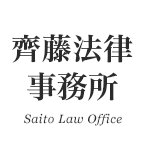Best Dangerous Product Lawyers in Tokyo
Share your needs with us, get contacted by law firms.
Free. Takes 2 min.
List of the best lawyers in Tokyo, Japan
About Dangerous Product Law in Tokyo, Japan
In Tokyo, as in the rest of Japan, the laws concerning dangerous products are designed to protect consumers from harm caused by defective or unsafe products. These laws obligate manufacturers, distributors, and sellers to ensure their products meet safety standards and do not pose a risk to consumers. The legal framework includes the Product Liability Law (PLL), which holds manufacturers liable for damage caused by defects in their products, and the Consumer Product Safety Act (CPSA), which regulates the safety of consumer goods.
Why You May Need a Lawyer
Legal assistance is often sought in situations where an individual has been injured or has suffered losses due to a dangerous or defective product. This can occur in a variety of scenarios, including but not limited to defective electronics causing fire or injury, harmful side effects from pharmaceuticals, children’s toys that pose choking hazards, or automotive parts that malfunction. A lawyer specializing in this field can help victims understand their rights, navigate the complexities of product liability law, and seek compensation for their injuries or losses.
Local Laws Overview
The key components of Tokyo's legal framework relevant to dangerous products include the Product Liability Law (PLL) and the Consumer Product Safety Act (CPSA). Under the PLL, a manufacturer can be held liable for damages without the victim having to prove negligence if a product defect can be demonstrated. The CPSA requires businesses to report any serious product-related accidents to the government and to take measures such as product recalls if a product is found to be unsafe. Additionally, Japan’s Ministry of Economy, Trade, and Industry (METI) oversees product safety and can issue directives for corrective measures.
Frequently Asked Questions
What constitutes a product defect under Japanese law?
A product defect could be any flaw in design, manufacturing, or instructions/warnings that makes a product unsafe for its intended use or beyond what an ordinary consumer would reasonably anticipate.
How do I prove product liability in Tokyo?
Proving liability typically requires demonstrating that the product was defective, the defect caused injury or damage, and the victim used the product as intended or in a reasonably foreseeable manner.
What types of compensation can I seek?
Victims can seek compensation for medical expenses, lost income, pain and suffering, and, in some cases, punitive damages, depending on the circumstances of the case.
Is there a time limit for filing a product liability claim in Tokyo?
Yes, there is a statute of limitations. Claims under the Product Liability Law must be filed within three years from the day the victim became aware of the damage and the liable party or within ten years from the time the defendant delivered the product.
Do I need to keep the damaged product?
Yes, preserving the product is crucial for evidence. Do not attempt to fix it, as doing so could affect your claim.
Can I file a claim for a product bought overseas?
If the product caused harm while you were in Japan and the manufacturer or seller does business in Japan, you might be able to file a claim.
What if I’m partially at fault for the incident?
Japan applies comparative negligence, so compensation might be reduced based on the victim's share of fault.
Are punitive damages available in dangerous product cases in Japan?
While rare, Japanese courts may award punitive damages in egregious cases of manufacturer negligence or malicious intent.
How do I report a dangerous product?
Dangerous products can be reported to METI or the Consumer Affairs Agency (CAA) in Japan, which handle complaints and investigations related to product safety.
What role do safety regulations play in a product liability case?
Compliance with safety regulations can influence liability. However, even if a product meets regulatory standards, manufacturers can still be held liable for defects.
Additional Resources
For those seeking more information or needing to report a dangerous product, the Consumer Affairs Agency (CAA) and the Ministry of Economy, Trade, and Industry (METI) are valuable resources. Both agencies offer guidance on consumer rights, safety recalls, and how to file complaints. Additionally, the Japan Product Liability Association offers resources for legal assistance and education on product safety and liability laws.
Next Steps
If you believe you have a claim related to a dangerous or defective product in Tokyo, the first step is to consult with a lawyer who specializes in product liability. Gather all relevant documentation, including medical records, receipts, and correspondence related to the product. Your lawyer can then help you understand your rights, evaluate the strengths of your case, and guide you through the process of seeking compensation.
Lawzana helps you find the best lawyers and law firms in Tokyo through a curated and pre-screened list of qualified legal professionals. Our platform offers rankings and detailed profiles of attorneys and law firms, allowing you to compare based on practice areas, including Dangerous Product, experience, and client feedback.
Each profile includes a description of the firm's areas of practice, client reviews, team members and partners, year of establishment, spoken languages, office locations, contact information, social media presence, and any published articles or resources. Most firms on our platform speak English and are experienced in both local and international legal matters.
Get a quote from top-rated law firms in Tokyo, Japan — quickly, securely, and without unnecessary hassle.
Disclaimer:
The information provided on this page is for general informational purposes only and does not constitute legal advice. While we strive to ensure the accuracy and relevance of the content, legal information may change over time, and interpretations of the law can vary. You should always consult with a qualified legal professional for advice specific to your situation.
We disclaim all liability for actions taken or not taken based on the content of this page. If you believe any information is incorrect or outdated, please contact us, and we will review and update it where appropriate.












